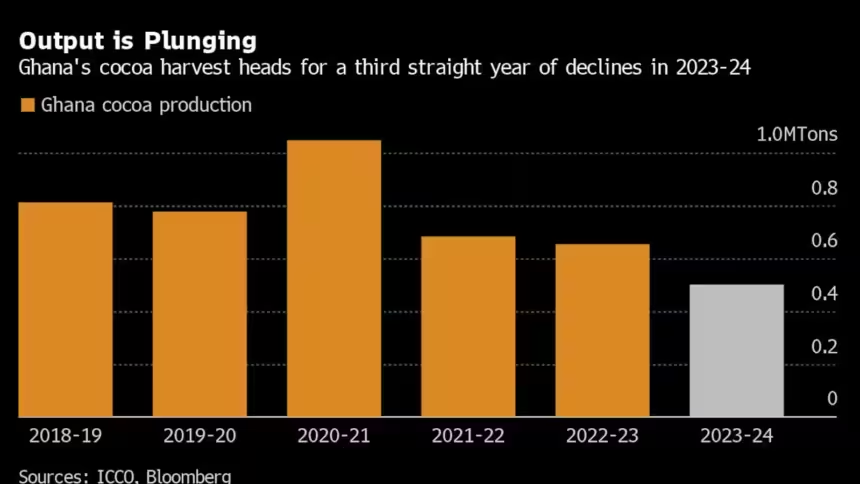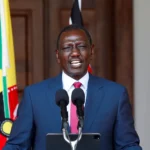Ghana is negotiating a $500 million loan with cocoa traders, including Olam Group Ltd. and Barry Callebaut AG, to finance its cocoa industry operations. This move comes as the country faces delays in securing its annual syndicated loan from regular lenders due to uncertainty over crop yields.
At least one-third of the $1.5 billion in loans sought by the industry regulator, the Ghana Cocoa Board (COCOBOD), is expected to come from cocoa traders. The funds are intended to serve as a stopgap measure while Ghana and banks continue their discussions in preparation for the upcoming October season.
This is the second consecutive season that Ghana, the world’s second-largest cocoa producer, has solicited funds from cocoa dealers instead of securing its annual syndicated loan on time. The delays have been caused by complications from last year’s debt restructuring, which pushed the loan approval to December.
Ghana’s cocoa production has faced challenges, including unfavourable weather, disease, and a shortage of fertilizers, leading to a global cocoa shortage for the third consecutive year.
- Advertisement -
The country’s production fell from 683,000 tons in 2021-22 to 654,000 tons in 2022-23, with a projected decline to 501,000 tons by September’s end.
The loan from cocoa traders will help COCOBOD cover costs for seedlings, chemicals, fertilizers, and bean purchases from farmers, while also supporting the central bank in stabilizing the national currency.
Ghana expects cocoa output to recover by 40% to 700,000 tons in 2024-25, but banks remain skeptical due to disappointing crop yields in recent years. The country also has outstanding forward sales contracts of around 250,000 tons, some of which have been deferred from the past three years.
COCOBOD plans to start the new season a month earlier in September to safeguard stocked beans and implement a new cocoa management system to ensure compliance with European Union deforestation rules.










